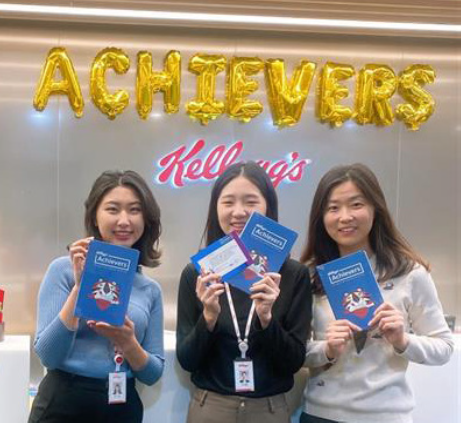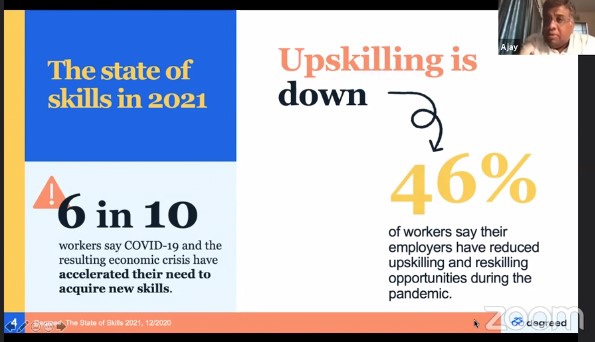HR Tech Fest Connect 2021: What’s happening on Day 2

HR Tech Fest Connect 2021 continues with an in-depth look the key priorities and issues facing HR leaders in 2021.
Key predictions that will define the future of work

Day 1 of HR Tech Fest Connect 2021 featured insightful discussions on topics such as employee engagement and strategic workforce planning.
Technocracy: Leaving no employee behind

Diana Spalding, Head of Apps, Oracle Singapore, explains why organisations need to look beyond old ways of working and create a workplace technocracy.
New Zealand launches national framework to assess workplace DEI

The launch of the national framework to measure workplace diversity, equity and inclusion will help organisations make changes to improve.
Prolonged pandemic worsens gender gap in Japan

A Cabinet Office panel has concluded that a prolonged pandemic is likely to cause the gender gap to widen, and urged the government to act.
Philippine senator seeks to get seniors to be digital-ready for WFH

Senator Grace Poe has urged for educational programmes to help seniors work from home (WFH) instead of leaving their homes during the pandemic.
Taiwan passes amendment to foreign talent recruitment bill

The Legislative Yuan has approved an amendment to an act that will lower requirements for foreign white-collar professionals seeking work in Taiwan.
Unleashing the power of generational diversity: Time for HR to take the lead!

Rachele Focardi explains why improving generational diversity is now key for workplace success.
Forging new pathways for women’s careers

Women, allies and organisations must come together to drive meaningful change for women in the workplace, Skillsoft has advocated in a report.
Changes in Australia’s federal budget to benefit part-timers and women

Treasurer Josh Frydenberg has scrapped the A$450 (US$354) a month threshold to pay mandatory super in the 2021 federal budget.
Identifying the key trends and priorities defining HR and work tech

HR Tech Fest Connect 2021 will provide key insights that will allow organisations to plan for a successful workplace transformation.
Pregnant workers in Cambodia benefit from government subsidies

The government’s subsidy programme has disbursed US$24 million to pregnant workers since its launch in January 2018.
Malaysian companies urged to lodge concerns on regulatory barriers

The MyMudah platform, launched last July, aims to alleviate the economic impact of COVID-19 on local enterprises and international businesses.
Australia considers increasing childcare subsidies for female workers

To increase women’s participation in the workforce, the Australian government is considering increasing childcare subsidies in its upcoming budget.
Why companies need ‘right-brain leadership’

Josh Bersin explains why the pandemic and its aftermath have highlighted the need for leaders who are empathetic, inclusive and highly flexible.
Singapore to improve employment opportunities for disabled people

Some of the plans to help those with disabilities have already been rolled out in 2020, while more will be rolled out progressively from the second half of 2021.
HR Tech Fest Connect 2021 brings organisations into the future of work

At HR Tech Connect 2021, HR visionaries and experts like Anita Lettink and Josh Bersin will address the key priorities facing HR leaders in 2021.
More women take up key leadership positions in Singapore

More women were appointed to the boards of statutory boards, companies and Institutions of Public Character (IPCs) in 2020.
Employee engagement key to retain talent in 2021

A new Achievers Workforce Institute report aims to help HR and business leaders connect the dots on engagement and retention to reduce turnover.
Kellogg fuels their global workforce with frequent recognition

Kellogg picked the Achievers Employee Success Platform to redefine their recognition and rewards programme goals.
Women trade union group in Malaysia calls for 98 days of maternity leave

Wanita Industrial Malaysia (WIM), a trade union coalition representing female workers, has urged the government to mandate 98 days of maternity leave.
More South Korean women in their 30s drop out of the workforce

The labour force participation rate of women peaks between ages 25 and 29, before it plunges in the 30s as women leave work to care for their children.
L&D driving organisational growth in a new world of work

Day 1 of Learning Technologies Asia 2021 highlighted issues such as reskilling and upskilling, as well as how organisations need to rethink employee engagement.
Agile and skills-ready workforce for a changing world

A recent webinar by Workday highlighted how a skilled and engaged workforce is key to building an agile organisation.
World Bank urges Malaysia to increase female labour participation

The development model that worked in the past for Malaysia is no longer enough for it to navigate to the next stage of its development, it added.
Japan’s largest business lobby aims for more women representation

Measures include the implementation of a support programme for women on matters of hiring and promotion to upper management and executive roles.
Malaysian employers group says retirement age should not be raised

A blanket increase of the retirement age to 65 and beyond could adversely impact the labour market, causing unemployment among younger workers.
SSIA launched the first semiconductor women’s forum
Diversity is key to address the challenges facing the semiconductor industry, the inaugural Semiconductor Women’s Forum highlighted.
Singapore’s employment rate among women remained stable in 2020

Singapore’s Manpower Minister also highlighted that a welcome change in the workplace would be having more women representation in company boards.
Gender equality key to boost Cambodia’s economic output: ADB

Women are more likely to be in vulnerable employment and also more likely to be in the category of unpaid contributing family worker.
